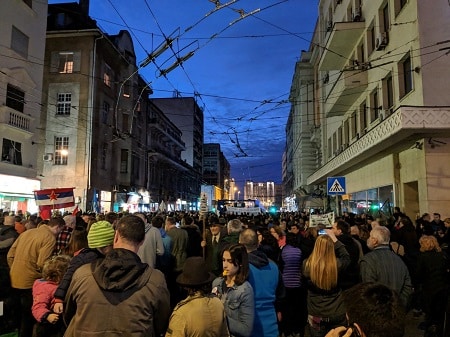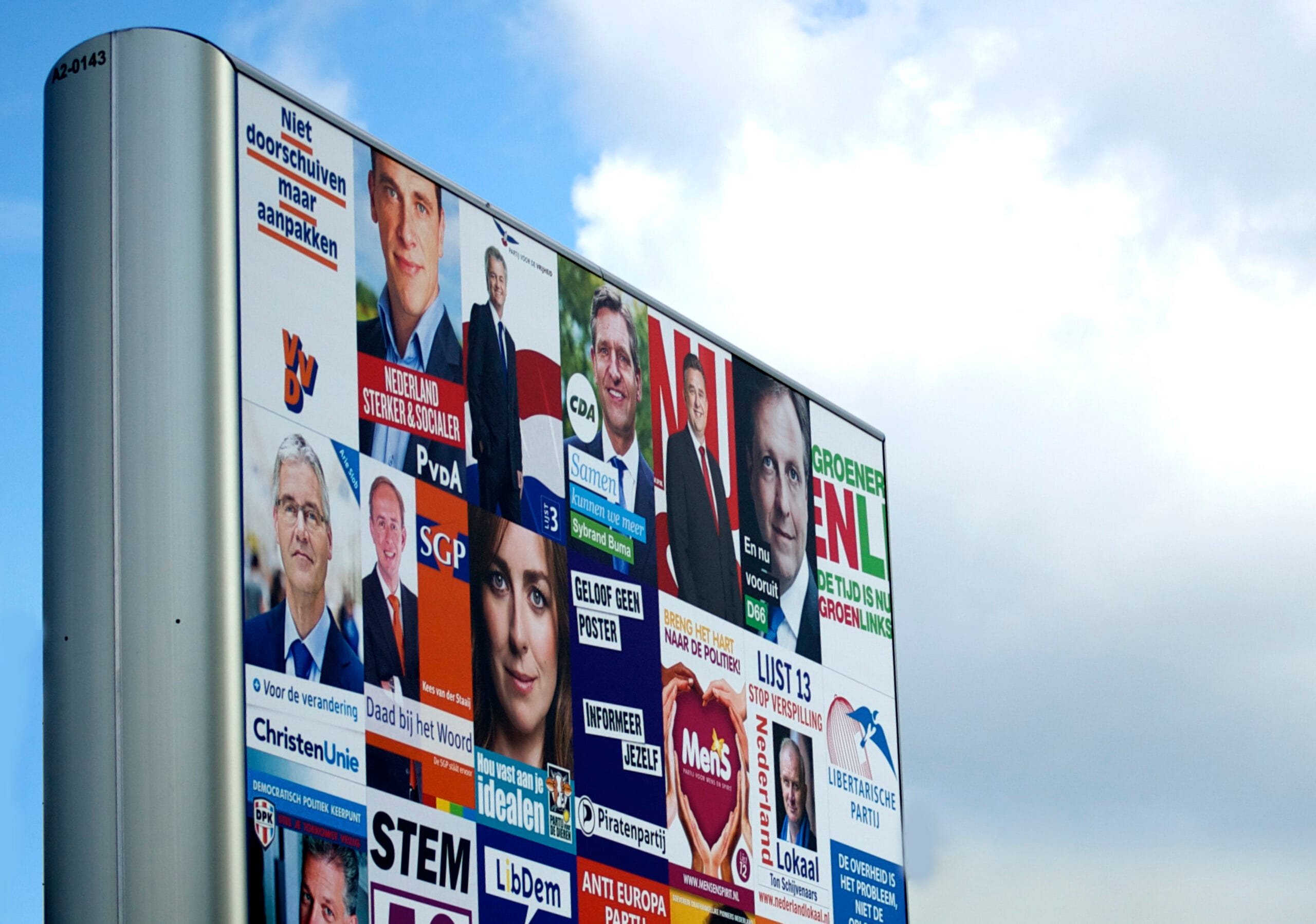After months of weekly street protests, the protest movement in Serbia on Saturday 16 March tried to increase pressure on authoritarian President Vučić by occupying the public broadcaster's building and, unsuccessfully, demanding airtime. Without using excessive force, the building was cleared by police. The protesters dealt a small blow to the president in their fight for media freedom and restoration of democracy and rule of law, but the road to victory is still long. Foundation Max van der Stoel was at the protests in Belgrade and saw a particularly diverse group of citizens defy fear and take on the president.
Thousands of students, senior citizens, activists, parents with children, actors, scientists, and members of opposition parties from left to right gathered in front of the philosophy faculty building in Belgrade. They are demanding the resignation of the president and fair and free elections. Media freedom is an important part of this. The protesters sipped their brought drinks and listened to speeches before the protest march towards the public broadcaster RTS building. The RTS building has more often been a symbol of opposition to the government. As a key opposition Radical Party (SRS) figure, Vučić protested here in 2008 against the extradition of Radovan Karadžić convicted of genocide. As president, Vučić ignored the protests: "Even if there were five million of you, I will not grant any demand." The protest movement was immediately renamed #1of5million.
Public broadcaster symbol of resistance
After another round of speeches in front of the RTS building and the reading of an alternative journal, most of the protesters returned home. A few dozen, including opposition leaders, forced their way into the building to demand airtime. The riot police quickly put an end to this while the government was poised to condemn the protesters' "violence" with a press conference by the interior minister and the president himself. Meanwhile, foreign minister Ivica Dačić - student and party colleague of former president Milošević - chimed in on the broadcast of the Serbian Fox News (Pink TV) to bash the protesters.
The current wave of protests is peaceful and has a high degree of self-correction: protesters address each other on misbehaviour and vandalism. A boy who wanted to smash a window was reprimanded by fellow protesters. Internally, there is much division and lack of a clear strategy. For instance, many protesters are uncomfortable with the leadership role of Boško Obradović, leader of the primal conservative and pro-Russian movement Dveri. For now, the wide differences in the protest movement have made room for a larger goal: deposing the president and restoring democracy. Some of the protesters are hoping for the Macedonian scenario here: the EU should play a mediating role in an agreement between the government and the opposition in which agreements would be made on a caretaker government to guarantee free and fair elections. Important in this would be media freedom and cleaning up the electoral list.
EU must be stricter
Meanwhile, the European Union has its own challenges, accepting a decline in fundamental freedoms and democracy as long as Serbia delivers on peace and stability, especially in relation to Kosovo. However, it is uncertain whether the protests will remain peaceful. The EU should not wait for escalation and be stricter on strengthening the rule of law and protection of fundamental rights. The fear in society, especially in smaller towns and rural areas where many people depend on government jobs, is real. It is unacceptable that in a country negotiating accession with the EU, members of a ruling party use mental and physical threats as a means to achieve their political goals.
The protest movement has called on people from all over the country to come to Belgrade on 13 April for what is supposed to be the biggest protest.




